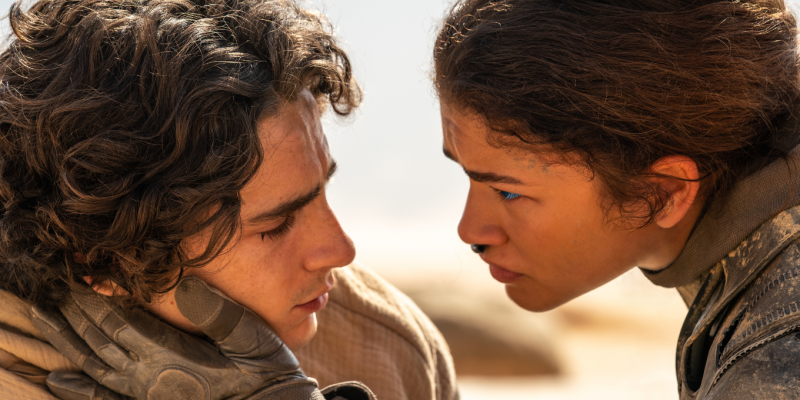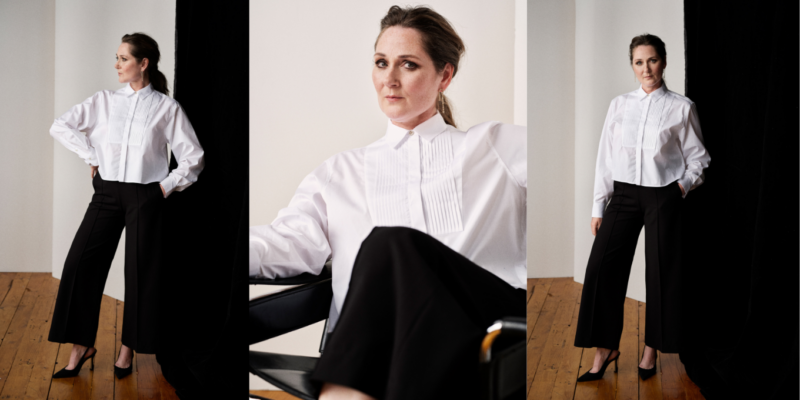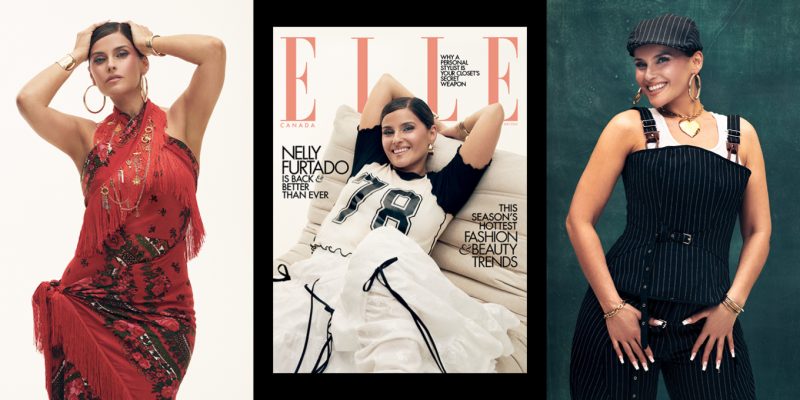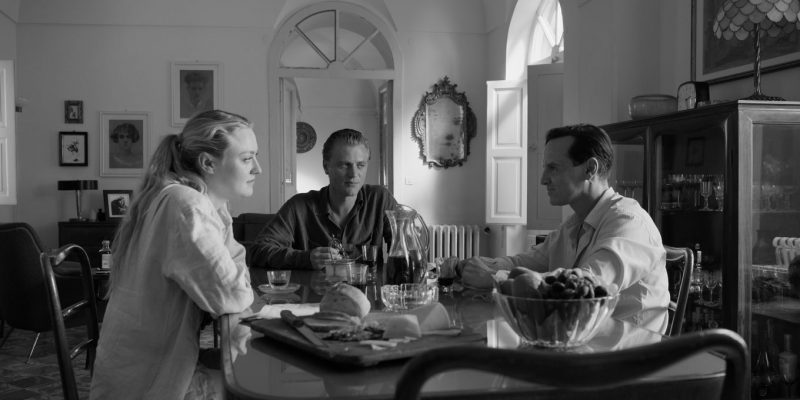Society
Why Do Friendship Breakups Hurt So Much?
It feels like everyone is going through a friendship breakup right now. Here’s how to get through yours.
by : Katherine Singh- Dec 6th, 2023

Getty Images
For Meaghan,* it all started with a tomato. In 2015, the 32-year-old Toronto-based writer was teaching ESL abroad in South Korea when she bonded with a fellow teacher, Sarah*. Hesitant about a new friendship at first, they ended up at a bar for brunch. “I gave her my tomatoes, and that was, funny enough, the start of our friendship,” she says.
Eventually, Meaghan left Korea. Sarah didn’t. They stayed in touch, but their friendship wasn’t the same with the distance between them. In 2018, Sarah invited Meaghan to a family wedding, but she quickly rescinded the invitation. Sarah told Meaghan they weren’t compatible, that their values didn’t align. Eventually, she stopped reaching out. “I was basically the friendship equivalent of being quiet-quitted,” Meagan says.
There’s no hard data on a numeric rise in friendship breakups, but a quick scroll of your TikTok FYP will confirm that there’s a lot of quite-quitting going on when it comes to friendships. Most recently, the October release of Taylor Swift’s 1989 (Taylor’s Version) album has given rise to the “Now That We Don’t Talk Friendship Edition” trend, with hundreds of thousands of users relating over breaking up with toxic BFFs. An explanation for this prevalence may have to do with the period of time we’re in. “The past three years have been traumatic, to say the least,” says Dr. Siqi Huang, a clinical and health psychologist and consulting psychologist at Layla Care. “There’s so many stressful and divisive topics, the pandemic and how we react to that, political elections, wars, and rising costs of living. A lot of people are feeling really stressed and tense, so that can create a ground for arguments or lack of arguments if you don’t want to face it.”
@readsbyfio it was fun while it lasted tho but i feel so contented with who i have right now 💗 #fyp #booktok #greenscreen #swifttok #swiftie #nowthatwedonttalk #friends ♬ original sound – Toria
It’s not simply a matter debating what TV shows to binge-watch together, instead, Huang says, it’s needing to know whether or not said friend holds the same fundamental values as you, “and that might create a lot of tension,” she says.
For 27-year-old Ragini*, the long-simmering tension between her and university friend Rachel* came to a head in May 2022 after they both experienced romantic breakups shortly into the start of the pandemic. While Rachel jumped into a new relationship, Ragini was on a different journey, dating around. “She didn’t like how I would make myself seem to men in general, and for me, I didn’t like that she just jumped from one relationship to the next and I didn’t feel like she practiced her autonomy enough,” Ragini says. “There was very genuine intention, but we were both trying to think that we knew better for the other person.”
They eventually had a conversation ending their friendship; it was necessary, but hard. “She’s probably the only person I’ve been so 100% my authentic self. I loved how comfortable and safe I felt around her,” Ragini says. “It felt very similar to a romantic breakup.”
“You’re in this state of shock. I remember going to her Instagram to see if she had unfollowed me yet or waiting to see what she was up to. I was very hyper-aware of how we were interacting with each other”
For many people, friendship breakups can be more devastating than romantic ones, specifically because of the weight these relationships have. Often, we’ve had a longer and stronger relationship with friends, who we turn to through tough times. As opposed to romantic relationships, which we assume may come with hardships (wedding vows literally state “through better or through worse”), “we have a bit more of an idealistic expectation [with friends] that this is someone I enjoy being with,” Huang says. “We don’t expect that sometimes it’s just not going to be great.”
It doesn’t help that society tends to place greater emphasis on romantic relationships, leaving those who have lost friends feeling unsupported. “People don’t really know what it means, how strong your friendship [is],” Huang says. “So when you break up with a friend, some people may inadvertently not be sensitive to that; they might say: ‘You should join another club and find more friends,’ whereas we are trained to be more sensitive if you go through a divorce. It’s not like: ‘Just go on Tinder and find another wife’.”
@devriebrynn if a friendship breakup has happened to you, you are not alone. I see you. #friendshipbreakups #friendshipbreakup ♬ original sound – Devriebrynn
In the days and weeks after her conversation with her now ex-bestie, Ragini felt that comparable loss. “You’re in this state of shock,” she says. “I’d be looking at her location [on her iPhone]. I remember going to her Instagram to see if she had unfollowed me yet or waiting to see what she was up to. I was very hyper-aware of how we were interacting with each other after we had broken up.”
Thankfully, with time comes healing — and hindsight. While Meaghan says what initially drew her and Sarah together were perceived similarities and a desire for deep friendship, now she sees how being in a new country and feeling like a fish-out-of-water may have impacted their friendship “…In some ways I think that made us feel artificially closer than we maybe really were,” she says. “I’m not sure we would’ve become friends outside of that specific context.”
For anyone going through a friendship breakup, Huang recommends approaching it like you would other tough convos, like ending a romantic relationship or quitting a job. While you don’t necessarily need to have a formal conversation, be prepared for any discussion. “Think about why you are ending the relationship. What does it mean to end it? Are you never going to show up in my life again or is it that we only see each other once or twice a year?” Huang suggests. Use “I” language, like “I’ve been thinking about our friendship,” or “I feel like we’ve grown apart.” And then communicate whatever your boundary is—and stick to it, Huang says.
Finally, it’s important to have some empathy for the other person and the relationship you had. “They might be entirely surprised, and they’re probably going to be hurt,” Huang says. “You’re both going to have a hard time in this conversation.”
The upside of a friendship breakup is that, unlike the end of a romantic relationship, you have more friends, and these are people you can look to and lean on for help, something that helped Ragini through her breakup. “As a monogamous [person], you put all that pressure on a romantic relationship on one person, whereas it didn’t feel like as much of a blow because I had all these other really incredible, close friends,” she says. “So even though I couldn’t lean on this one person, I had other people I could lean on.”
*Names have been changed or only first names used
Newsletter
Join our mailing list for the latest and biggest in fashion trends, beauty, culture and celebrity.
Read Next

Fashion
Tennis Champions Roger Federer and Rafael Nadal Climb a Mountain With Louis Vuitton
An Odyssey of rivals turned friends.
by : Allie Turner- May 18th, 2024

Culture
Two ‘Bridgerton’ Cast Members Are Dating IRL
The Ton is a-twitter with rumours.
by : Rebecca Mitchell- May 17th, 2024

Life and Love
Have You Tried These Goodies for Sexual Wellness Yet?
Consider this your sign that it’s time to improve your sexual well-being—a key part of your overall health.
by : ELLE Canada- May 7th, 2024




